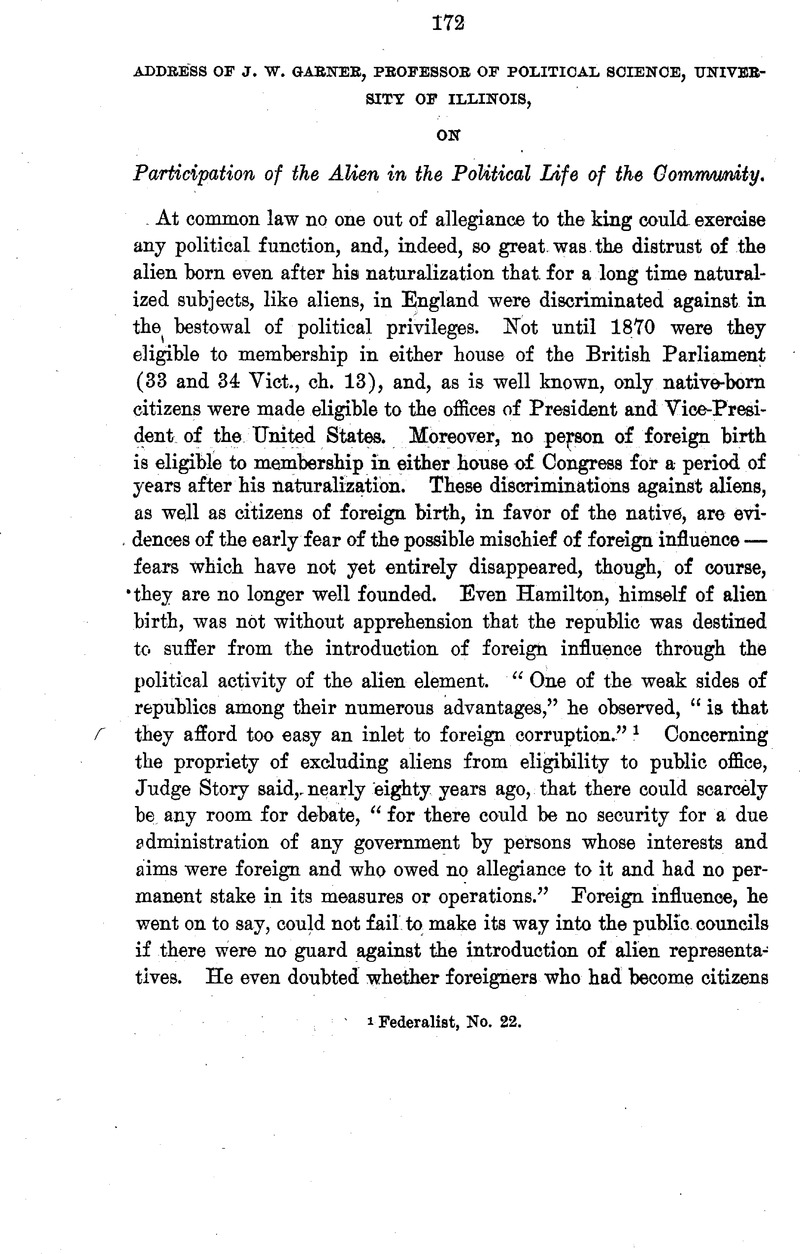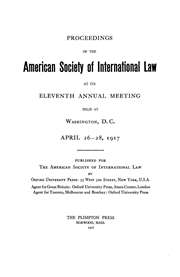No CrossRef data available.
Article contents
Participation of the Alien in the Political Life of the Community
Published online by Cambridge University Press: 27 February 2017
Abstract

- Type
- Third Session
- Information
- Proceedings of the American Society of International Law at its annual meeting (1907-1917) , Volume 5 , 1911 , pp. 172 - 183
- Copyright
- Copyright © American Society of International Law 1911
References
1 Federalist, No. 22.
2 Commentaries on the Constitution, Vol. I (4th ed.), Sec. 818.
3 Nationality, p. 138.
4 Senator Douglas was in error as to Wisconsin, for the organic act of 1836 for the government of that territory restricted the right to vote to citizens of the United States. Apparently, however, this restriction did not commend itself to the people of the territory for in the first constitution of the state the right of suffrage was extended to aliens who had declared their intention of becoming citizens of the United States. — J. W. G.
5 In Vermont, whose Constitution allows “ every man of full age” to vote, aliens might also claim the privilege.
6 Census Report, 1900: Population, Vol. I, p. 913.
7 Weiss, Droit International Priv6, Vol. II, pp. 169-178; also Andreani, La Condition des Etrangers en France, p. 11; and Calvo, Le Droit International, Vol. II, pp. 193-194.
8 See summary of the citizenship laws of the various countries in the Report on Citizenship, Expatriation and Protection Abroad (1906), House Document No. 326, 59th Congress, 2d Sess., pp. 270-534.
9 Foreign Relations of the United States, 1882, pp. 230-231. In 1895 the department said: “ The acceptance of civil office in a foreign country indicates such an identification of the person accepting it with the country he serves as to raise serious doubts whether he can rightfully claim as against that country the protection of his original nationality.” Foreign Relations, 1896, Vol. II, pp. 854-855.
10 Foreign Relations of the United States, 1893, p. 183.
11 Moore, Digest of International Law, Vol. Ill, pp. 783-784.
12 Moore, Digest of International Law, Vol. I l l , p. 785
13 Twenty-fourth Report of the U. S. Civil Service Commission, pp. 65-66.
14 Act of March 2, 1907. See also the rules governing the issue of passports, dated March 23, 3907, American Journal of International Law, April, 1907, Supplement, pp. 259-261.
15 See Moore, Digest of International Law, Vol. IV, p. 57.
16 Compare the address of Senator Elihu Boot on “ The Basis of Protection to Citizens Residing Abroad,” in the Proceedings of this Society for 1910.
17 Census Report: Population, Vol. I, p. 913.




